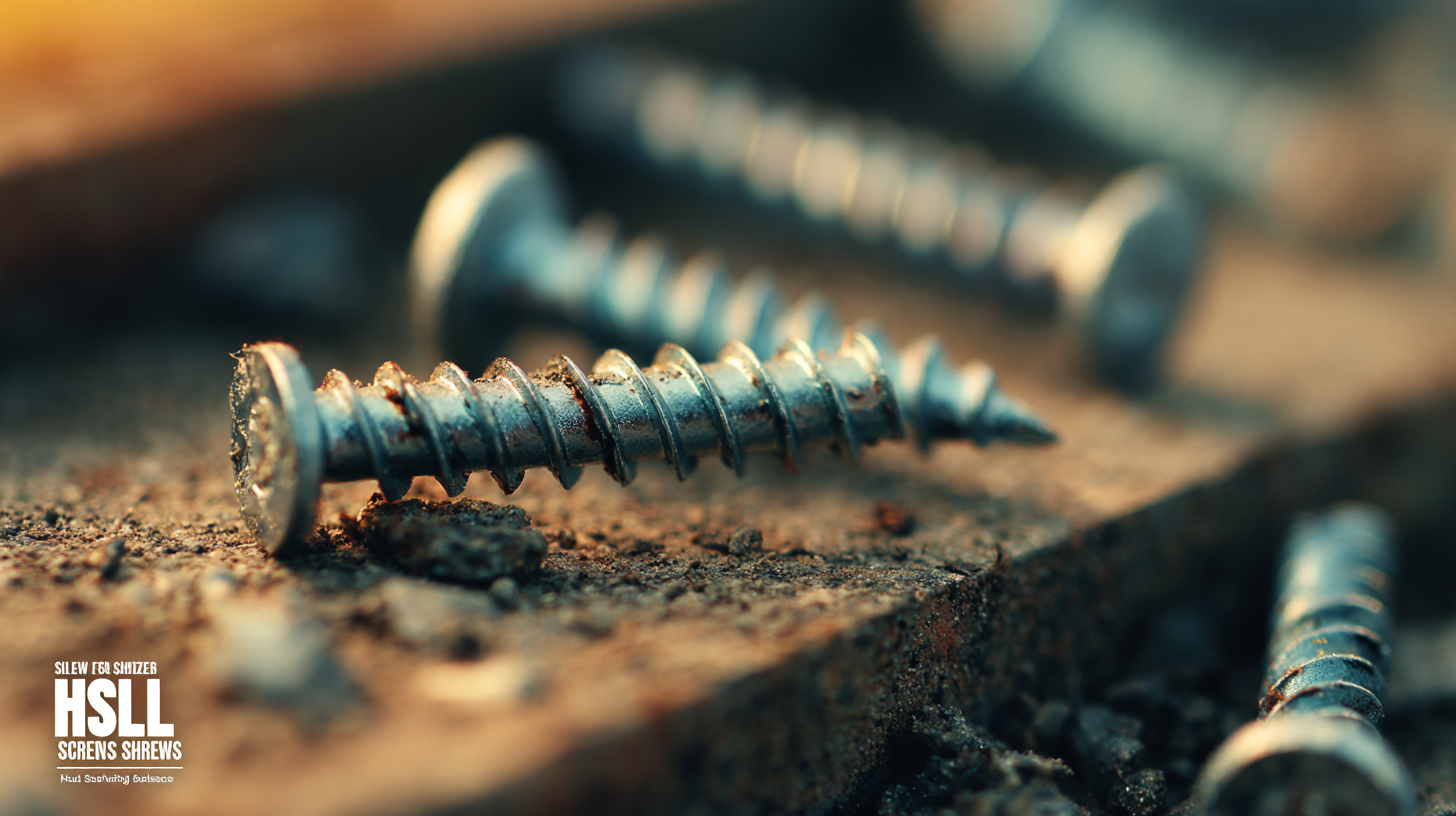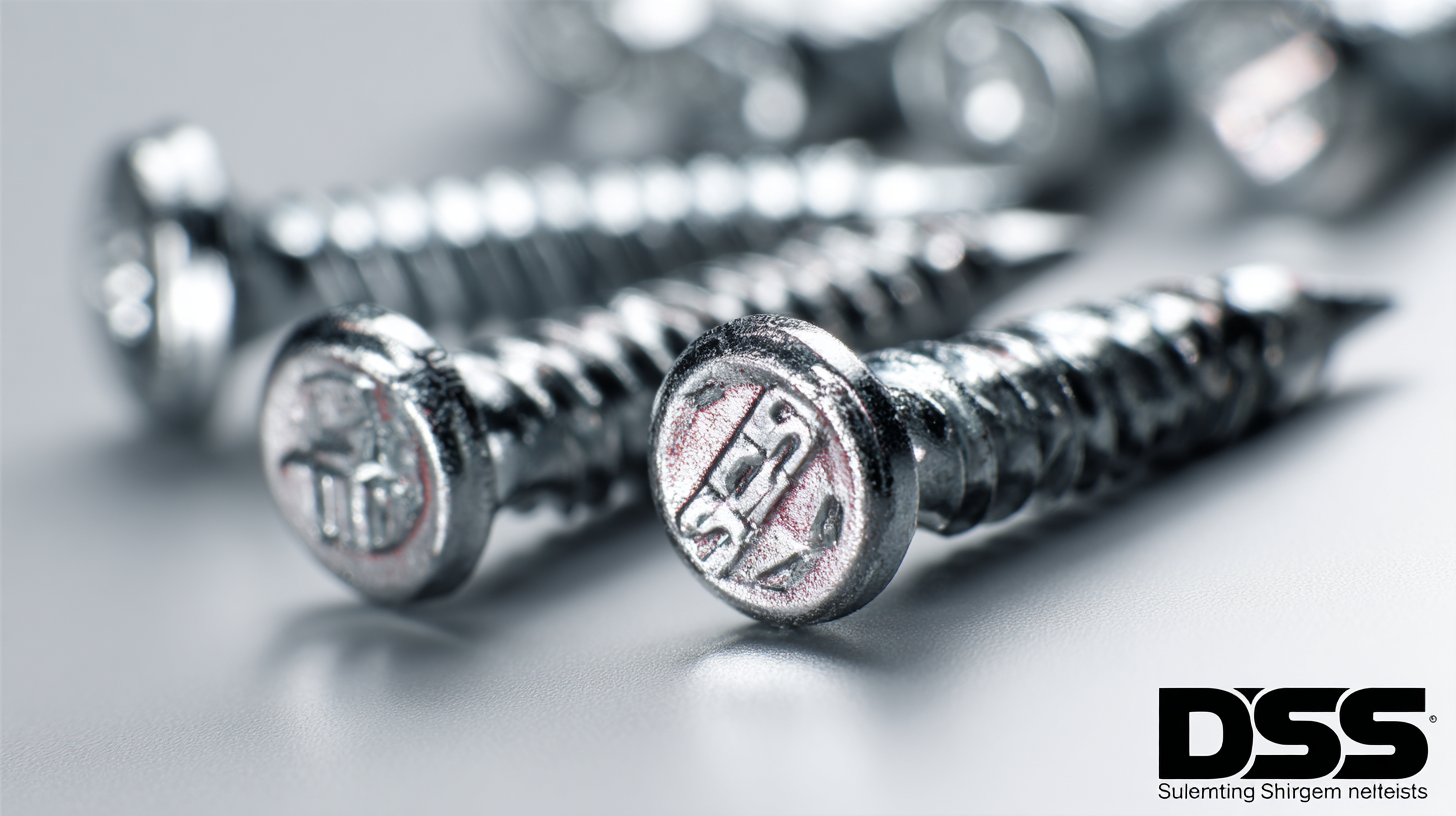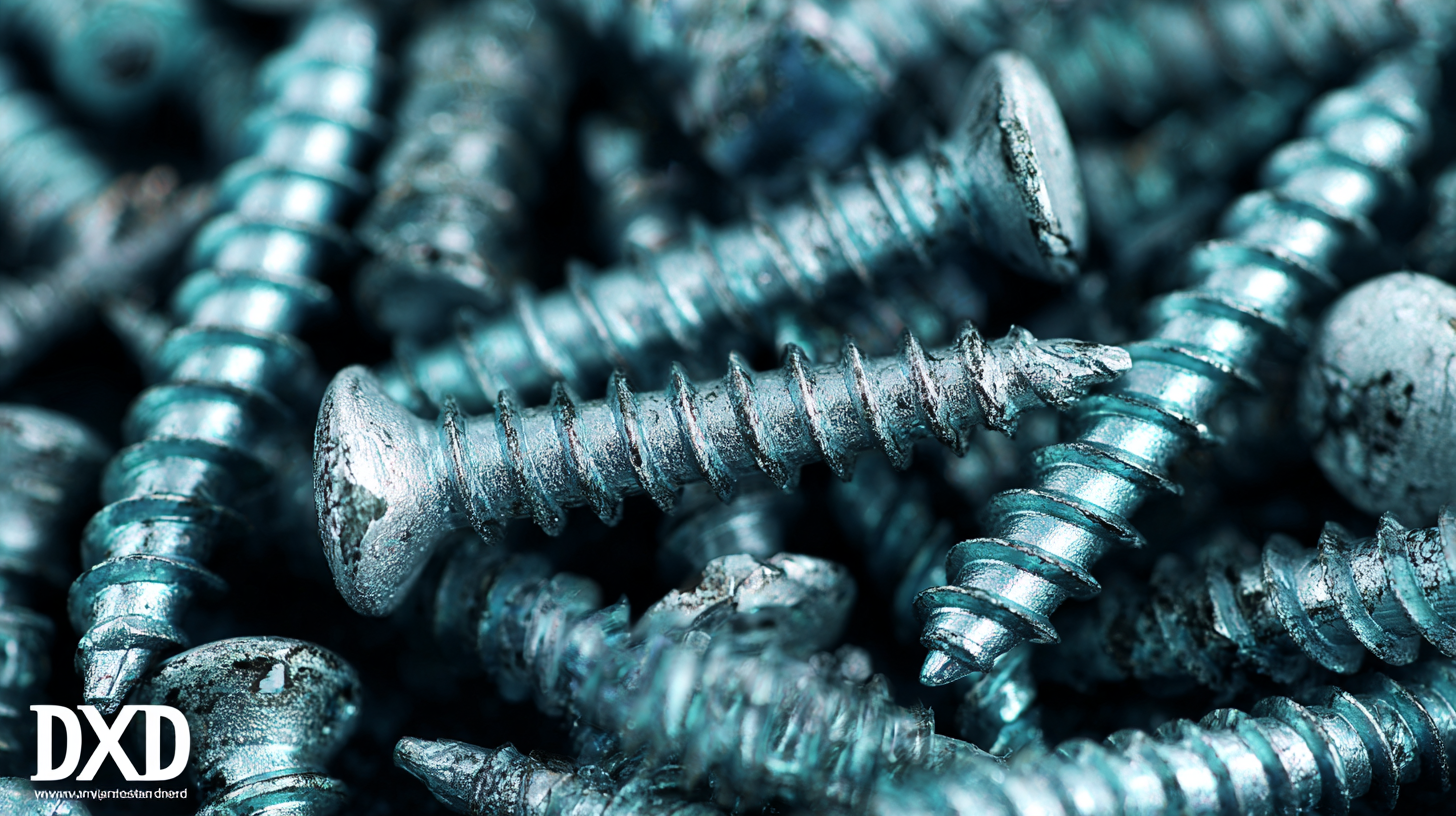
How to Choose the Best Self-Drilling Screws for Your Construction Needs
In the ever-evolving landscape of construction materials, the choice of fasteners plays a critical role in ensuring structural integrity and project success. Among various options, Self-Drilling Screws have gained immense popularity due to their efficiency and robustness. According to a market research report by Grand View Research, the global screw market is projected to reach USD 10.5 billion by 2025, driven by innovations in manufacturing and a significant increase in construction activities worldwide. Notably, self-drilling screws, known for their ability to create their own holes while driving into materials, are increasingly favored for both commercial and residential projects. This trend underscores the necessity for construction professionals to understand the diverse types and specifications of Self-Drilling Screws available today, ensuring they select the most suitable option for their specific needs. This blog will guide you through the essential criteria for choosing the best Self-Drilling Screws to meet your construction requirements, highlighting the quality and reliability typically associated with trusted Chinese manufacturing.

Understanding Self-Drilling Screws: Key Features and Benefits to Consider
When selecting self-drilling screws for your construction projects, understanding their key features and benefits is essential. Self-drilling screws come equipped with a unique drill bit tip that eliminates the need for a separate pre-drilling process. This innovative design not only speeds up installation but also reduces the risk of material splitting, making them ideal for various applications, including metal, wood, and plastic.
Another important aspect to consider is the material and coating of the screws. High-quality self-drilling screws are often made from carbon steel or stainless steel, providing durability and resistance to corrosion. Additionally, various coatings, such as zinc or epoxy, enhance their longevity and suitability for outdoor use. Choosing the right screw also involves considering the head style and drive type, as these factors can influence how well the screw grips material and its overall performance. By assessing these features, you can ensure that you select the most effective self-drilling screws tailored to your construction needs.
Comparison of Self-Drilling Screws Features
This chart compares the key features of self-drilling screws based on ratings from 1 to 10. It highlights the importance of corrosion resistance, tensile strength, application versatility, ease of installation, and cost considerations in selecting the best self-drilling screws for construction needs.
Essential Materials for Self-Drilling Screws: Choosing the Right Composition
When selecting self-drilling screws for construction applications, the material composition is a critical factor influencing both performance and durability. Most self-drilling screws are made from materials such as steel, stainless steel, or brass. Steel is often chosen for its strength and affordability, with coated options available to enhance corrosion resistance. According to a 2021 industry report by Smith & Associates, approximately 70% of construction professionals prefer zinc-plated steel screws for outdoor projects due to their durability in harsh weather conditions.

Stainless steel grades, such as 304 and 316, are favored in marine and high-corrosion environments. A study by the American Fastener Technology Institute indicated that stainless steel screws offer up to 10 times more resistance to rust and oxidation compared to traditional steel. Furthermore, specialty materials such as polymer-coated screws are gaining traction for their lightweight properties and enhanced resistance to chemical exposure, making them suitable for a variety of applications. Selecting the right composition not only ensures the screws can withstand environmental pressures but also contributes to the overall integrity of the construction project.
Determining Screw Size and Length: Factors for Optimal Performance
When selecting self-drilling screws for construction projects, understanding the optimal size and length is crucial for achieving the best performance. Recent research emphasizes the importance of aligning screw dimensions with the physical properties of the materials being used, particularly when working with structures that are subject to heavy loads. For example, a study on bone density optimized pedicle screw insertion highlights how choosing the right screw size based on the elastic modulus of surrounding tissue can significantly enhance the stability and longevity of the installation.
 Similarly, in construction, selecting screws that match the load-bearing characteristics of the materials can help prevent issues such as stress concentrations and structural failures.
Similarly, in construction, selecting screws that match the load-bearing characteristics of the materials can help prevent issues such as stress concentrations and structural failures.
Moreover, determining the appropriate length of screws is equally vital. A biomechanical study examining femoral fractures found that screw length and configuration play key roles in minimizing the risk of peri-implant fractures. This indicates that a meticulous assessment of the screw length can provide safer and more effective outcomes. Advanced techniques, such as 3D simulations, are now being utilized to calculate the best insertion angles and depths, ensuring that each screw operates optimally within the given material framework. By integrating these insights, construction professionals can enhance the resilience and efficiency of their projects, making informed choices about self-drilling screws tailored to their specific requirements.
Evaluating Coatings and Finishes: Enhancing Durability and Corrosion Resistance
When selecting self-drilling screws for construction projects, evaluating coatings and finishes is crucial to ensure durability and corrosion resistance. Coatings such as zinc plating, galvanization, and epoxy can significantly enhance a screw's lifespan by providing a protective barrier against environmental factors. Zinc-coated screws are commonly used for exterior applications due to their ability to resist rust effectively, while galvanization offers a more robust defense against severe weather conditions. It's essential to consider the specific environment where the screws will be used, as harsher conditions will necessitate higher-grade coatings.
Additionally, the choice of finish plays a vital role in the overall performance of self-drilling screws. For example, black oxide finishes not only offer aesthetic value but also create a layer that limits corrosion. Meanwhile, ceramic-coated screws exhibit exceptional hardness and corrosion resistance, making them ideal for demanding applications. By understanding the properties of various coatings and finishes, you can select self-drilling screws that not only meet your mechanical requirements but also stand the test of time in challenging environments.
Common Applications for Self-Drilling Screws: Selecting Based on Project Requirements
When selecting self-drilling screws for your construction projects, it’s crucial to consider the specific applications you have in mind. These screws are designed to eliminate the need for pre-drilling, making them ideal for tasks that require efficiency and precision. For instance, in metal fabrication, self-drilling screws are often used to fasten metal sheets, providing a secure hold without compromising the integrity of the materials. Their sharp points and specialized threads allow them to penetrate metal surfaces easily, which is essential for structural applications.
Another common application is in wood construction, where self-drilling screws can be utilized for framing and decking. In these cases, choosing screws with corrosion-resistant coatings is vital, especially for outdoor projects where exposure to the elements is a concern.
Additionally, when working with thicker wooden materials, selecting screws with longer lengths and more robust threading will ensure a tight grip and longevity. Therefore, understanding the material and environmental conditions of your project is key to selecting the right self-drilling screws that meet your requirements.
